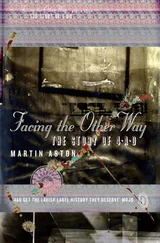Sarah Caudwell - The Shortest Way to Hades
Здесь есть возможность читать онлайн «Sarah Caudwell - The Shortest Way to Hades» весь текст электронной книги совершенно бесплатно (целиком полную версию без сокращений). В некоторых случаях можно слушать аудио, скачать через торрент в формате fb2 и присутствует краткое содержание. Жанр: Иронический детектив, на английском языке. Описание произведения, (предисловие) а так же отзывы посетителей доступны на портале библиотеки ЛибКат.
- Название:The Shortest Way to Hades
- Автор:
- Жанр:
- Год:неизвестен
- ISBN:нет данных
- Рейтинг книги:5 / 5. Голосов: 1
-
Избранное:Добавить в избранное
- Отзывы:
-
Ваша оценка:
- 100
- 1
- 2
- 3
- 4
- 5
The Shortest Way to Hades: краткое содержание, описание и аннотация
Предлагаем к чтению аннотацию, описание, краткое содержание или предисловие (зависит от того, что написал сам автор книги «The Shortest Way to Hades»). Если вы не нашли необходимую информацию о книге — напишите в комментариях, мы постараемся отыскать её.
The Shortest Way to Hades — читать онлайн бесплатно полную книгу (весь текст) целиком
Ниже представлен текст книги, разбитый по страницам. Система сохранения места последней прочитанной страницы, позволяет с удобством читать онлайн бесплатно книгу «The Shortest Way to Hades», без необходимости каждый раз заново искать на чём Вы остановились. Поставьте закладку, и сможете в любой момент перейти на страницу, на которой закончили чтение.
Интервал:
Закладка:
On Thursday, presumably just after saying goodbye to Rupert and Jocasta, Camilla and her cousins sailed down from Corfu to Preveza, where friends of theirs were holding a party. When it was over they decided not to wait until morning but to sail back by night as far as Paxos. They had all, it was thought, had a good deal to drink. A few miles south of Parga they were overtaken by the storm of which we had already heard, and Camilla was swept overboard from the deck.
You may be under the impression that the deck of a sailing-boat is much the same as the deck of a Channel steamer — a broad expanse of solid timber, with good stout railings round it. This is not the case: on a boat such as Camilla’s — I gather it was a Sadler 32—the deck consists of the cabin-top and a strip of timber, about eighteen inches wide and slightly sloping, on each side of it. There is a wire safety rail, of the same thickness as a washing-line, at about knee height.
You will understand, then, that if you were on the deck of a sailing-boat in a heavy sea with a gale blowing — and I think, Julia, that you should avoid the contingency — it would not be at all difficult to be swept off. In such conditions it is customary to wear a safety-harness — a webbing contraption with a lifeline shackled to it: the lifeline should be clipped to some secure point on the boat, so that if you do go over you have some chance of getting back. No one knew whether Camilla had been wearing such a thing: if she had, she had still been unable to get aboard again.
And that, in any ordinary sailing story, given the visibility and weather conditions, would have been the last of Camilla.
Beauty and riches, however, are not the only attributes which she shares with the heroine of a romantic novel: she has also, it seems, the same indestructible quality. In the early hours of Friday morning she was discovered by a fisherman somewhere on the seashore between Parga and Ayios Ioannis, wearing only a black silk negligée — by some accounts, indeed, entirely naked, but the black negligée version is preferred by connoisseurs. After going overboard she had simply struck out for the shore and kept swimming until she reached it — a distance, it was thought, of about three miles. She was bruised and fairly exhausted, naturally, but otherwise (said the sailing men, leering) in perfect condition. It really is a remarkable achievement: three miles may not sound far, but in pitch darkness with a heavy sea running, and without a mask or wetsuit — well, I suppose one might do it if one had to.
Such was the public interest in the notion of Camilla in her black negligée that I could learn little of what had happened to the others, though they too apparently spent an adventurous night. They were eventually taken off by a fishing vessel and the Sadler broke up on the rocks a mile or two from Parga — it seems very hard on Camilla, to be almost drowned and then find her boat was lost. I can give you, however, no further details.
It will soon be too dark to go on writing. The sun has gathered itself into a compact red circle and is slipping neatly down the sky behind Sivota Island. The bay where we are anchored looks rather pretty by this light, like a lake in Arcadia — almost encircled by mountains, with olive groves coming right down to the water’s edge and no sound except the tinkling of goat bells: Hilary would see nymphs and satyrs at every turn.
Further unrest among the crew, who complains of hunger and thirst and wants to go ashore for dinner. He instructs me to send you his love and to tell you of his sufferings and hardships — you will agree that I have done so in almost unseemly detail.
SV Kymothoe —at the same anchorage.
Monday morning.
By a coincidence less remarkable than you might think — the Ionian Sea is really a very small place — I have more news of Camilla.
The only other customers in the taverna where we had dinner were three Greeks of villainous appearance, all looking as if they were born with cutlasses between their teeth. After a while the oldest of them — a man about five foot square, with a huge walrus mustache — asked us in quite a friendly manner where we were from, and seemed very pleased when the crew replied in Greek. There followed an amiable conversation, which from time to time was translated to me in summary.
In the course of this the crew made some remark which gave rise to great hilarity, with much stamping of feet and banging of fists on the table: he had mentioned the story we had heard in Parga on the previous evening, and so put everyone in mind of Camilla’s black silk negligée.
It had been a friend of theirs who found her — a fellow-fisherman by the name of Stavros. Their friend Stavros was always lucky, they said, too lucky to come to any good end. It was therefore typical of him to have spent the night of the storm safe and comfortable in his bed and gone out in the morning to fish up an heiress, while the rest of them had been out on the rough sea and got nothing but the small fry — two boys and one girl only between the three of them, and her not an heiress. It was they who had taken the other three off the Sadler.
They had gone out with their nets as usual on Thursday night, not quite trusting the weather but unwilling to lose a night’s work and meaning to make for Parga if it looked like breaking. The storm, however, blew up more suddenly than they had expected, and overtook them a few miles south of Parga at about three o’clock in the morning — a force eight gale, gusting nine, and blowing from the south. Parga is at the center of a stretch of rock-bound coast running west to east for about twelve miles, almost at right-angles to the main coastline — when the wind is from the south, an absolute lee shore: a dangerous harbor to run for in a southerly gale. The skipper accordingly decided to ride out the storm at sea. They had just settled down comfortably for the night — I tell the story as it was told to me — when a distress flare went up somewhere on the starboard bow.
They motored towards the place where it had seemed to come from and after a few minutes the light of their storm-lantern picked up a small sailing vessel. She was carrying far too much sail and looked to be shipping a good deal of water. She was also moving fast towards the Parga shore. It seemed a pretty even chance whether she sank or broke up on the rocks, but certain that she must do one or the other.
Given the weather conditions, there was no possibility of salvaging the yacht, but the skipper thought they might manage something to help the people on board: he could see three of them above decks, and he didn’t think he needed to ask if they wanted to be taken off. He took the fishing-boat round to windward of the yacht and on to a parallel course, trying to bring her close enough, without a collision, for the two decks to be within leaping distance. The erratic progress of the yacht made it a difficult maneuver and it took him longer than he had hoped — all the time, you see, they were moving closer to the Parga shore. At last there were a few seconds when the two vessels were within six feet of each other, with the fishermen all shouting to those on the yacht to jump. One of them did and landed neatly enough on the deck of the fishing-boat: but the others couldn’t or wouldn’t.
At this stage the skipper was inclined (he said) to give himself no more trouble about the matter, and to leave the other two in the good hands of God. At the last moment, however, when the boats were moving apart, young Andreas jumped the other way — from the fishing-boat on to the deck of the yacht. This (said his shipmates) was because he had noticed that one of those left on the yacht was a girl, and he thought this would be a fine opportunity to cuddle her. (Great laughter and much digging of Andreas in the ribs — he was a large, placid-looking young man, who bore it all with fortitude.) They were in two minds (said the skipper) about going back for him; but he was the son of the skipper’s youngest sister, who had said he must be kept out of trouble, and probably meant that they shouldn’t let him cuddle strange women on sailing-boats. So the whole maneuver had to be repeated, with the Parga shore coming closer all the time.
Читать дальшеИнтервал:
Закладка:
Похожие книги на «The Shortest Way to Hades»
Представляем Вашему вниманию похожие книги на «The Shortest Way to Hades» списком для выбора. Мы отобрали схожую по названию и смыслу литературу в надежде предоставить читателям больше вариантов отыскать новые, интересные, ещё непрочитанные произведения.
Обсуждение, отзывы о книге «The Shortest Way to Hades» и просто собственные мнения читателей. Оставьте ваши комментарии, напишите, что Вы думаете о произведении, его смысле или главных героях. Укажите что конкретно понравилось, а что нет, и почему Вы так считаете.












